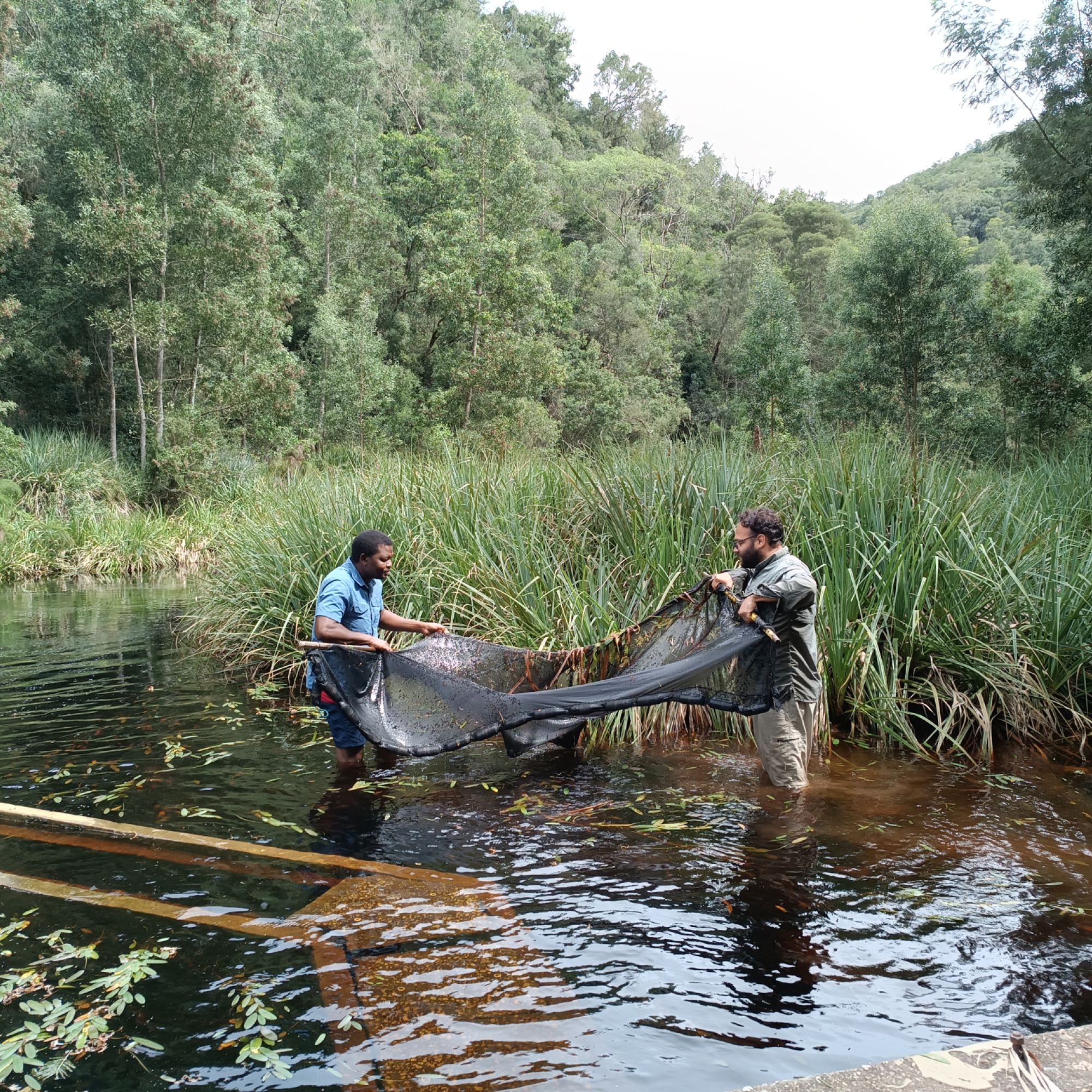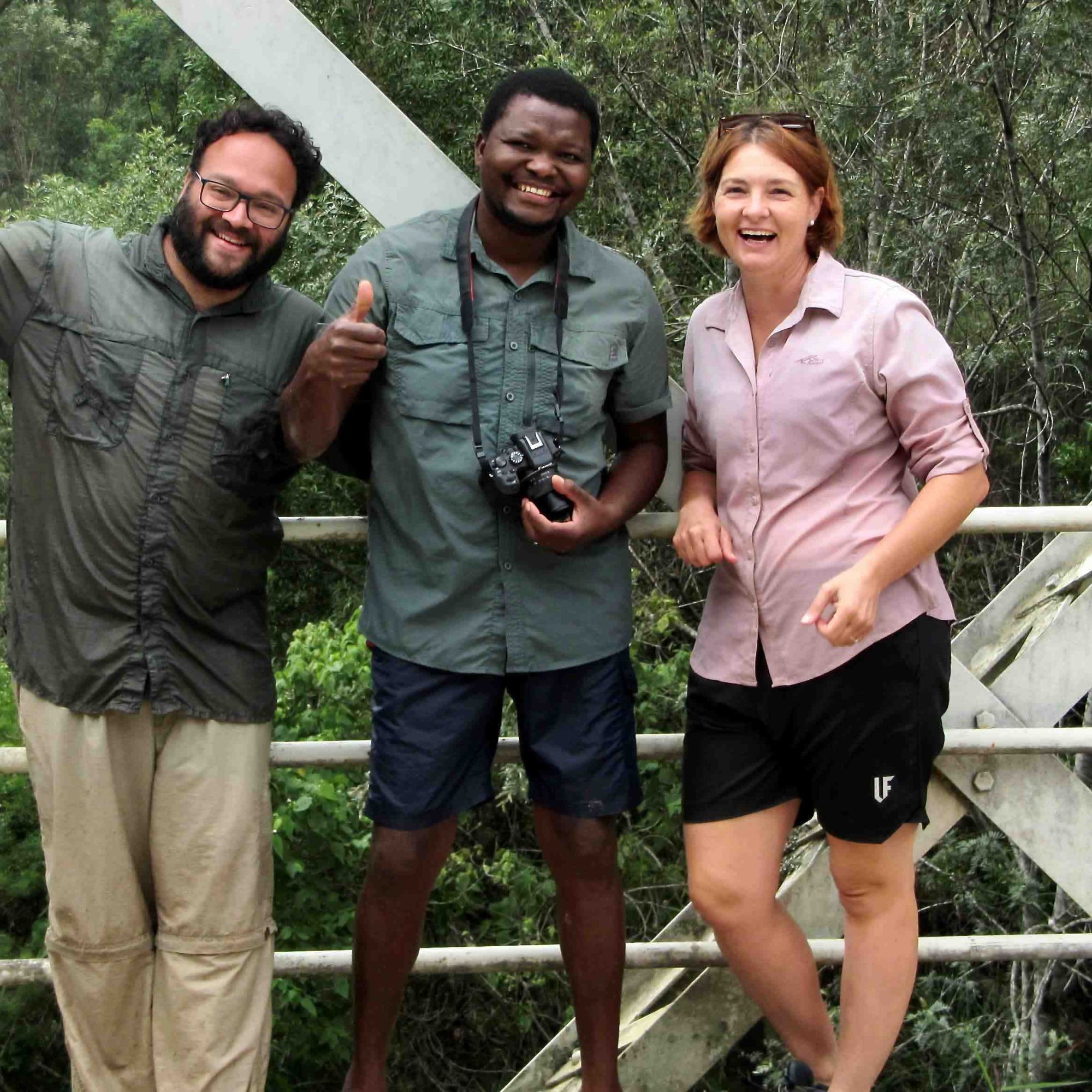
Freshwater Fish Survey in the Garden Route
CapeNature Fauna Ecologist Dr. Martine Jordaan recently collaborated with the South African Institute for Aquatic Biodiversity (SAIAB) research group on a field trip to the river systems of the Garden Route. Dr. Albert Chakona and Prof Paul Skelton, freshwater fish experts at SAIAB have focused on resolving redfin taxonomy for the past decade, and their work has resulted in the description of several new redfin species.
The Western Cape Province is located in the Cape Fold Ecoregion, home to a group of fish known as the redfins or rooivlerkies. Except for one species, redfins are endemic to the Cape Fold Ecoregion. Ongoing research indicates that most redfin species have high levels of genetic and morphological diversity between populations and that this divergence may be enough to warrant the status of separate species.
The survey aimed to collect voucher specimens and DNA samples to use in the description of two new redfin species in the rivers of the Garden Route. The two candidate species belong to the redfin genus Pseudobarbus and were discovered through recent genetic studies, but to date, there are no formal species descriptions for these taxa.
The biological material collected during this survey will enable the completion of formal species descriptions. CapeNature will build on this process by collecting additional distribution data to enable an accurate conservation status assessment of these taxa once they are described.
The most recent National Biodiversity Assessment (2018) indicates that freshwater fish are the most threatened vertebrate group in the country. South Africa is diverse in terms of having several distinct aquatic ecoregions, each with its own freshwater fish fauna.

Dr Albert Chakona and Dr Pedro Braganca sampling in the Homtini River in search of the elusive redfins of the Garden Route.

Successful sampling makes for happy researchers and good collaborations: Drs Pedro Braganca, Albert Chakona and Martine Jordaan celebrating collecting the specimens that will be used for describing a new redfin species for the Western Cape. Photo by Prof Paul Skelton




